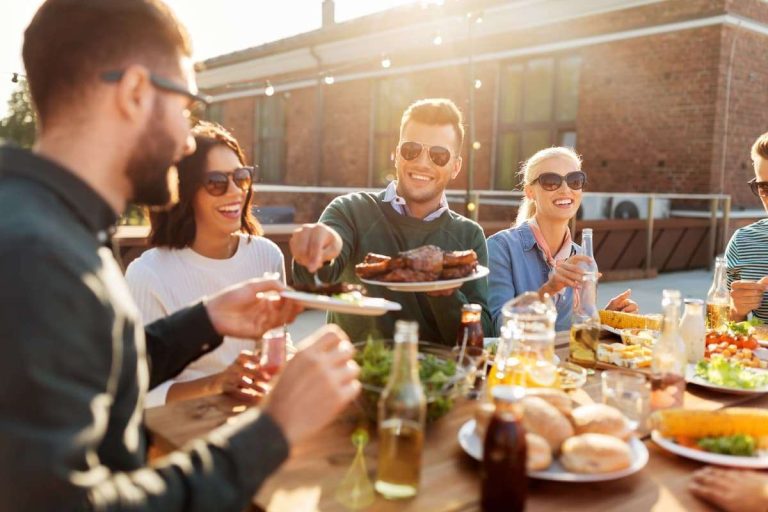However, as consumption increases, it can impair cognitive function, leading to difficulties in judgment, decision-making, and coordination. In addition to its other effects, alcohol has a tendency to loosen up inhibitions and relax the person drinking it. For many people, especially in awkward or tense social situations, this can be just what they need to relax and enjoy themselves. If you are concerned about your alcohol use, it’s crucial to seek professional help.
- We recently launched our in-app chatbot, Melody, powered by the world’s most powerful AI technology.
- The stages of being drunk range from sobriety to potential death, with each stage characterized by specific emotional and physical symptoms.
- Alternating alcoholic beverages with water not only keeps you hydrated but also helps dilute the alcohol in your system, lessening its emotional impact.
Understanding the Physical Sensations of Being Drunk
You may engage in reckless behavior or put yourself and others at does being drunk feel good risk without realizing it. If you or someone you know is struggling with alcohol consumption, seeking help and support is crucial. There are numerous resources available, such as support groups, helplines, and counseling services, that can provide guidance and assistance. Reframe supports you in reducing alcohol consumption and enhancing your well-being. Alcohol, master of disguise that it is, can make us feel invincible. Suddenly, you’re an incredible dancer or the world’s most hilarious stand-up comedian.
- Ever found yourself crying over a sappy commercial or getting into a heated debate about something trivial after a few drinks?
- Another common sign of drunkenness is impaired judgment and decision-making.
- As a result, people often flush or blush when they are intoxicated.
Alcohol is overrated, and getting drunk feels awful
The effects of alcohol can last from a few hours to longer, depending on various factors, including the amount consumed and individual metabolism. It is important to note that even after the initial feeling of drunkenness wears off, alcohol can still impair cognitive and motor functions. Alcohol consumption is a common social activity, but the experience of being drunk can vary widely among individuals.
Effects of alcohol
This can manifest itself in risky behaviors, like trying to drive while drunk or getting into fights. Drunkenness can also cause people to behave impulsively or say things they wouldn’t normally say. Individual differences such as genetics, mental health, and tolerance levels can significantly influence how alcohol affects a person. Since alcohol can turn up the volume on your feelings, having a plan is key to staying grounded.
Common Physical Symptoms
Food helps slow the absorption of alcohol into your bloodstream. Drinking on an empty stomach accelerates the process, making you feel drunk faster and Substance abuse more intensely. Several factors influence how drunk you feel and how your body processes alcohol. As your body tries to process and expel excessive amounts of alcohol, nausea and vomiting may occur. This is your body’s way of reacting to the toxic effects of too much alcohol.

How Your Environment Shapes Your Drunk Experience
It boosts levels of dopamine, the feel-good chemical that gives you that warm, fuzzy feeling that “all is well” in the world no matter what’s actually going on around you. A hangover typically feels like a combination of headache, nausea, vomiting, fatigue, increased anxiety, and depression the morning after heavy drinking. It’s caused by dehydration, alcohol’s toxic byproducts, inflammation, and neurotransmitter imbalances as the body recovers. Reaching the stupor or coma stage indicates severe alcohol poisoning and is extremely dangerous. It can lead to seizures, respiratory depression, choking, permanent brain damage, and death if not treated immediately by medical professionals.
One of the initial emotional effects of being drunk is an increase in confidence and sociability. Alcohol stimulates the release of neurotransmitters like dopamine and serotonin, which contribute to feelings of euphoria and reduced social anxiety. This can make individuals feel more outgoing and willing to engage in conversations and activities they might normally avoid.
Why You Make Bad Decisions When Drunk

Just be sure to hydrate and eat something before you start drinking so that you don’t end up feeling too sick the next day. Being https://business.growthinc.co/dual-diagnosis-co-occurring-disorders-with/ drunk can feel euphoric and social at first but can lead to confusion, loss of coordination, and emotional instability as intoxication increases. When you need to talk to someone immediately, helplines offer a safe and anonymous space to do so. For instance, SAMHSA’s National Helpline is a free, private service available 24/7 for individuals and families facing mental health or substance use disorders. They provide referrals to local treatment facilities, support groups, and community-based organizations.
- The physical effects of alcohol are inherently depressive, systematically interrupting the normal function of various body systems.
- It boosts levels of dopamine, the feel-good chemical that gives you that warm, fuzzy feeling that “all is well” in the world no matter what’s actually going on around you.
“Alcohol Only Affects Your Judgment, Not Your Physical Abilities”
How quickly someone feels drunk depends on factors like age, sex, body size, metabolism, tolerance, whether they’ve eaten food, and if they’re consuming other drugs. While some find it fun to get a buzz from drinking alcohol from time to time, consuming too much of it can be downright dangerous. A person is sober or low-level intoxicated if they have consumed one or fewer alcoholic drinks per hour. As you drink, alcohol goes into your bloodstream and affects your brain and body functions. When you drink a lot, your body and brain functions slow down considerably.
The Science Behind Alcohol and The Brain
Inner Voyage prepares you to experience recovery, even if you’ve relapsed in the past, and to help you re-enter the world as your healed self. Alcohol lowers your inhibitions, which is why you might do things while drunk that you wouldn’t do sober. You might say things you wouldn’t normally say, take risks, or behave in ways that surprise you later.

